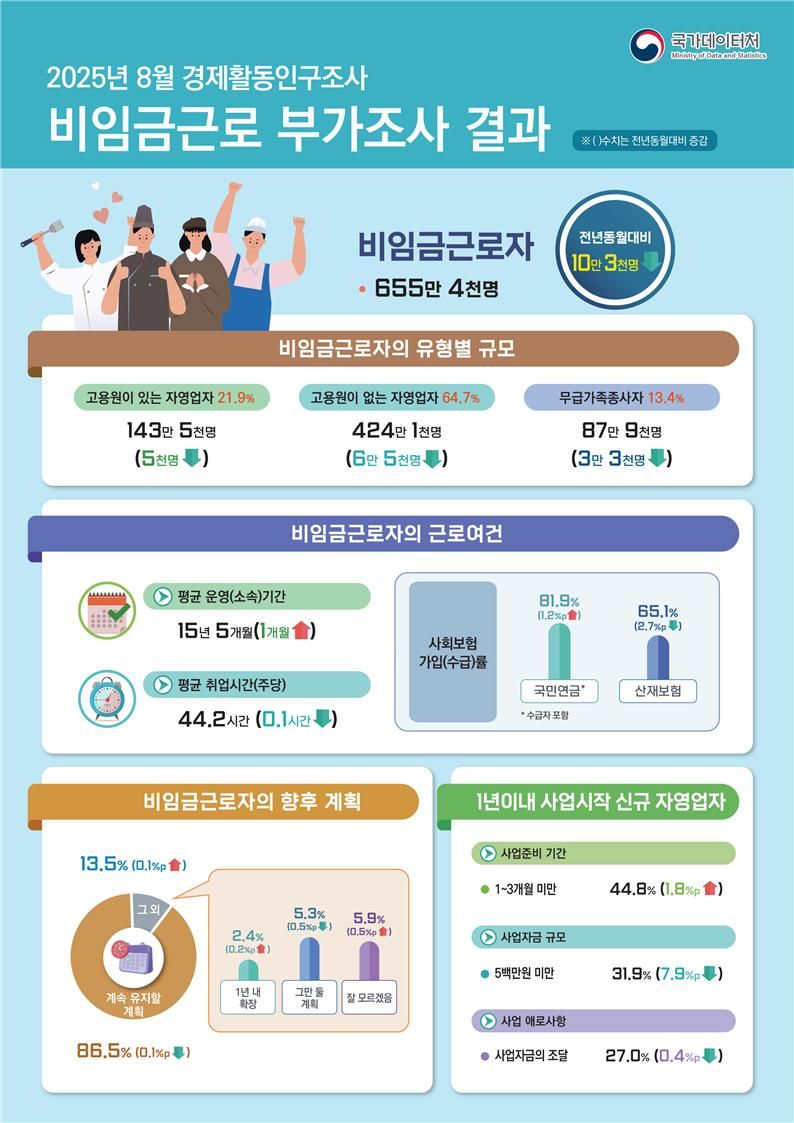"I Closed My Shop"—Sighs from the Self-Employed as Non-wage and Salary Workers Decrease by 100,000
- Input
- 2025-11-05 12:00:00
- Updated
- 2025-11-05 12:00:00

[The Financial News] The number of non-wage and salary workers has dropped by more than 100,000 over the past year, falling to the mid-6 million range. This decline is attributed to ongoing reductions in the self-employed population, driven by economic uncertainty and sluggish consumer spending.
According to the Ministry of Data and Statistics on the 5th, as of August this year, there were 6,554,000 non-wage and salary workers, a decrease of 103,000 (-1.5%) compared to the same month last year. The proportion of non-wage and salary workers among all employed persons fell by 0.5 percentage points to 22.6%.
Breaking it down, the number of self-employed persons with employees dropped to 1,435,000 (-5,000), and those without employees decreased to 4,241,000 (-65,000). However, the decline among unpaid family workers was relatively modest.
By age group, the number increased by 80,000 among those aged 60 and over. In contrast, there were clear decreases among key working-age groups: those in their 50s (-66,000), ages 15–29 (-59,000), 40s (-31,000), and 30s (-27,000).
By industry, agriculture, forestry and fisheries (-131,000) and Transportation and Storage (-41,000) saw significant declines. In contrast, Accommodation and Food Service Activities (+32,000), Education Services Industry (+31,000), and Membership Organizations and Personal Services (+31,000) recorded increases.
The average period of operation (or affiliation) for non-wage and salary workers was 15 years and 5 months, an increase of one month from the previous year.
For self-employed persons with employees, the average period increased by 10 months, and for those without employees, by one month. In contrast, unpaid family workers saw a decrease of three months.
Among self-employed persons who started their businesses within the past year, 44.8% spent less than 1–3 months preparing. The most common motivation for starting a business was the desire to run their own business (73.8%), followed by difficulty finding wage employment (17.9%).
The biggest initial challenges cited were securing business funds (27.0%) and finding sales channels and marketing (26.3%).
Regarding startup capital, 31.9% started with less than 5 million won, followed by 22.2% with 5 million to less than 20 million won. The main sources of funding were personal or family funds (68.6%) and loans from financial institutions (21.3%).
imne@fnnews.com Hong Ye-ji Reporter